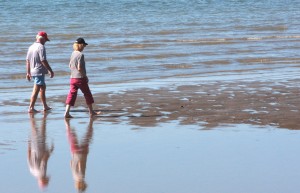How Setting Influences Your Characters

“A novel is a world unto itself. It is not the real world, though it may reflect it, but it is a world that lives and breathes, alternates between day and night, changes and grows, acts upon the characters or is indifferent to them.” – Writing the Breakout Novel by Donald Maas
The setting is a reflection of your characters. Consider their culture, customs, their level of sophistication, and their social, emotional and intellectual background.
“Readers usually are quick to balk at believing story people who appear completely out of tune with their setting.” – Setting by Jack M. Bickham
Setting affects your characters. It sets the atmosphere for your story, plays a role in the story, and your characters will interact physically and emotionally with it.
“…It is the combination of setting details and the emotions attached to them that, together, make a place a living thing. Setting comes alive partly in its details and partly in the way that the story’s characters experience it.” – The Fire in Fiction by Donald Maass
Your setting will provide you with an unlimited amount of details that are specific, vivid, and unique. These details should be presented in an active voice and from your character’s perspective.
“Mood in your novel is like the score of a movie—it plays in the background, deepening the feelings in the reader. Illuminating details operate to both set up and pay off emotional moments.” – Revision & Self-Editing by James Scott Bell
In closing, see your story through the eyes of a movie director. Each setting marks a scene in a movie, and each scene takes you directly into the minds of your characters, allowing us to experience the setting as they do.